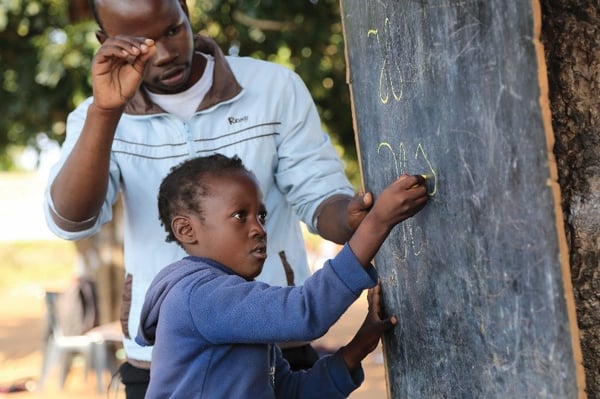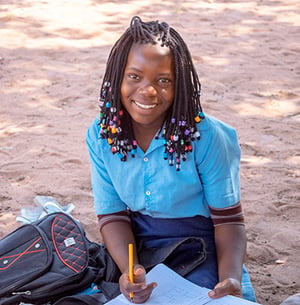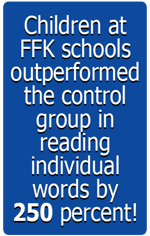Preserving Linguistic Diversity Helps Ensure Literacy in Mozambique

We think of animals as being endangered, but languages are under threat, too. According to the United Nations (UN), at least 43 percent of the estimated 6,000 languages spoken in the world are considered endangered.[1] Put differently, every two weeks a language disappears, taking with it a wealth of unique cultural heritage.
International Mother Language Day (IMLD), Feb. 21, has been observed every year since 2000 to promote the importance of cultural diversity and multilingualism. "Languages are the most powerful instruments of preserving and developing our tangible and intangible heritage," the UN explains in its statement about IMLD.[2] "Only a few hundred languages have genuinely been given a place in education systems and the public domain, and less than a hundred are used in the digital world."
In Mozambique, for example, young children grow up speaking one of several native languages at home, but are frequently taught to read and write in Portuguese, the official language of the nation. Recognizing the learning challenges this presents, the Planet Aid Food for Knowledge (FFK) introduced its bilingual literacy program in the project's second phase (2015-2020) to prioritize local language instruction in primary school and to serve as a model for bilingual education nationwide.
FFK's literacy initiative taught children to read and write in their mother tongue, which accelerated learning and made it easier for them to formally learn Portuguese at a later stage. According to the FFK final external evaluation report authored by Dr. Simone Doctors, students tested in their home language systematically outperformed those tested in another language, thus reinforcing the central premise of bilingual literacy education.


Planet Aid's flagship Food for Knowledge project in Mozambique developed early grade reading materials in two native languages, Changana and Rhonga
In partnership with Cambridge Education and Mozambique's Ministry of Education and Human Development (MINEDH), FFK developed early grade reading methodologies and materials for students and teachers in two native languages, Changana and Rhonga. Children at FFK schools showed a higher ability to recognize letter sounds, greater reading comprehension, and outperformed the control group in reading individual words by nearly 250 percent. The curricula and materials are now being used and replicated by MINEDH and other partners to scale up the programs and their impact in other districts and provinces. Overall, the project distributed around 250,000 bilingual student books, teacher guides and reading materials in the three languages to students and teachers in the program.
Through these efforts, FFK has helped to change local and international perceptions of local languages and their importance in formal education. With the project's close in 2020, the initiative will continue through the Mozambican government, schools and communities. The FFK experience shows that the expansion of mother language use and instruction in Mozambique and in other countries helps to improve the learning outcomes of students, while also preserving native languages and the history and culture that they represent.
[1] https://www.un.org/en/observances/mother-language-day
[2] Ibid
